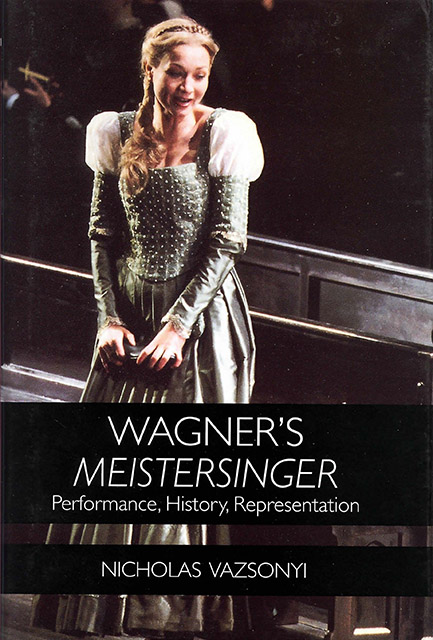9 - Masters and their Critics: Wagner, Hanslick, Beckmesser, and Die Meistersinger
Published online by Cambridge University Press: 25 March 2023
Summary
New Year's Day, 1869. In the very first entry of her voluminous diaries, Cosima Wagner reported on the progress of Richard's current projects, as she would continue to do faithfully for another fourteen years. Interspersed with prefatory remarks about her own great undertaking (the diaries) and a record of domestic details, we read that Richard is working on his fair copy of the now completed second act of Siegfried and “completing his essay on the Jews.” “Before lunch (at one o’clock) my beloved read me what he had written. At table, he told me more of the range of his essay, and we discussed his position, that is to say, the position of art as laid down by the Jews, which made me see Mendelssohn for the first time as a tragic figure.”
What Richard and Cosima were discussing here was actually the now notorious article Wagner had published anonymously in the Neue Zeitschrift für Musik nineteen years earlier, “Judaism in Music.” What Wagner had been working on that morning, on the other hand, and would finish over the next week or so, was a lengthy “afterword” to that essay intended to accompany its republication, now as an independent brochure under his own name. In the nineteen years since 1850, his situation had changed considerably. With the backing of King Ludwig II, he enjoyed a significant level of financial security, and, however controversial, his position as Germany's leading opera composer was by now unassailable. By 1869 he could afford to sign his own name to what had originally been a covert (and in fact largely ineffectual) piece of cultural terrorism. Just why he wanted to do so now, however, was (and has remained) a matter of some consternation. Whatever the reasons, it was at this point that the anti- Jewish rhetoric that had been percolating in his private and semi-private correspondence decisively spilled over into the sphere of public discourse.
The psychological roots of Wagner's anti-Semitism are surely deep and twisted, and they are intertwined (of course) with those of nineteenth-century European and specifically German anti-Semitism, both above and below the surface of historical record. Leaving aside the root causes of Wagner’s propensity to paranoia, persecution-complex, and general resentment, the more immediate impulses behind the original 1850 essay on (or rather against) “Judaism in Music,” as well those behind its 1869 afterword, are not that difficult to discern.
- Type
- Chapter
- Information
- Wagner's MeistersingerPerformance, History, Representation, pp. 165 - 189Publisher: Boydell & BrewerPrint publication year: 2003
- 15
- Cited by



